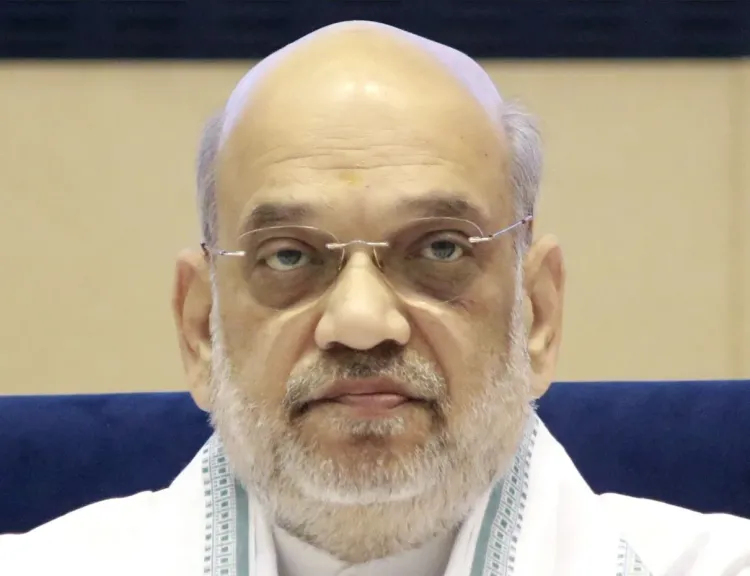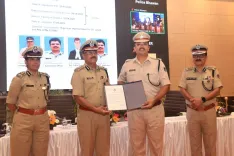How is Home Minister Amit Shah Advocating for Fingerprint Database Utilization in Crime Control?

Synopsis
Key Takeaways
- Implementation of NAFIS is crucial for recording fingerprints of arrested criminals.
- Regular reviews of criminal law implementation are necessary for progress.
- Integration of technology in the justice system can enhance efficiency.
- Biometric identification can aid in identifying unclaimed bodies.
- Support for regional languages in FIR registration is essential.
New Delhi, May 13 (NationPress) Union Home Minister Amit Shah emphasized on Tuesday the necessity of recording the fingerprints of all detained criminals under the National Automated Fingerprint Identification System (NAFIS) to ensure the database is utilized effectively.
During a meeting in New Delhi with Puducherry Lieutenant Governor (LG) K. Kailashnathan aimed at reviewing the implementation of three new criminal laws in the Union Territory (UT), HM Shah stated that features like e-summons, e-Sakshya, Nyaya Shruti, and forensics should be executed promptly.
He directed that the Chief Secretary and the Director General of Police of the Union Territory of Puducherry should evaluate the progress of the new criminal laws on a weekly basis, while the Home Minister should review it every 15 days, and the Lieutenant Governor should do so monthly.
The National Automated Fingerprint Identification System (NAFIS) is a biometric tool employed by law enforcement to catalog and recognize individuals through their fingerprints.
Previously, HM Shah articulated that only the Director of Prosecution (DoP) should possess the authority to provide legal counsel in any case.
The Home Minister stressed the importance of promptly implementing the new criminal laws.
He stated that FIRs in the Union Territory of Puducherry must be documented exclusively in the Tamil language, with provisions established to make them available in other languages for those who need it.
In earlier meetings concerning the enforcement of three new criminal laws with the National Crime Records Bureau (NCRB), HM Shah highlighted the importance of utilizing biometric technology for identifying unclaimed corpses.
The Union Home Minister called for regular interactions with senior police officials from States and UTs to track the progress of the Crime and Criminal Tracking Network and Systems (CCTNS) and Inter-Operable Criminal Justice System (ICJS), providing the necessary support to these initiatives.
He urged the NCRB to develop a data-rich platform that would aid Investigation Officers and other participants in the Criminal Justice System.
He commended the NCRB for its technical efforts in implementing the new criminal laws and the National Automated Fingerprint Identification System (NAFIS).
The Union Minister also reviewed the integration of CCTNS 2.0, NAFIS, Prisons, Courts, Prosecution, and Forensics with ICJS 2.0 at a national level. Key figures such as the Union Home Secretary, the Director of the NCRB, and various senior officials from the Ministry of Home Affairs, NCRB, and NIC were present at the meeting.
During discussions, he instructed the NCRB to facilitate the comprehensive execution of the new criminal laws within ICJS 2.0, emphasizing the use of applications like eSakshya, Nyaya Shruti, eSign, and eSummons across all States and UTs.
He elaborated on the necessity of generating alerts from the registration phase to the resolution of a case, indicating that alerts to investigation officers and senior officials based on pre-defined timelines would expedite investigations.
He stressed that a team from the Ministry of Home Affairs and NCRB should visit the States and Union Territories to promote the adoption of technological projects and offer assistance in every possible way.









